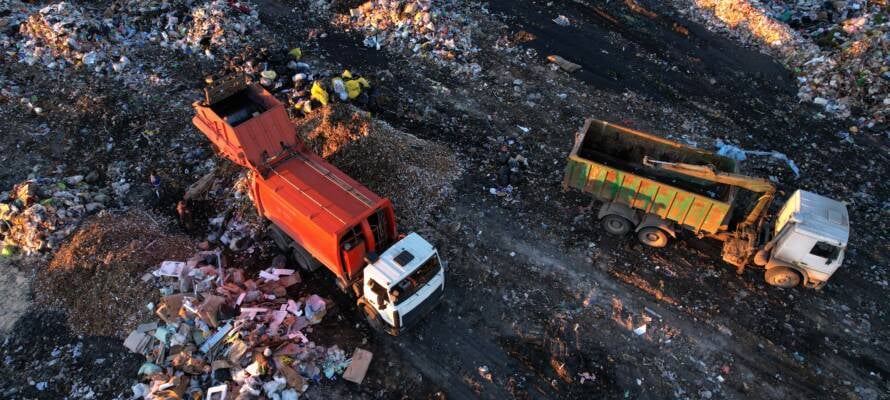The researchers said that the production of biofuels from organic waste components can significantly reduce the volume of municipal waste sent to landfills, decreasing pollution.
By Pesach Benson, TPS
Israeli researchers unveiled a groundbreaking method to convert wet organic waste into biofuels, marking a significant stride toward sustainable energy and waste management.
This innovative approach, developed without the need to dry the waste, has the potential to dramatically reduce the volume of waste sent to landfills while providing a renewable energy source that could meet up to a third of Israel’s marine fuel needs.
Israel has been grappling with an escalating waste management crisis. In 2019, the country generated approximately 5.8 million tons of municipal waste, equating to an average of 1.76 kilograms per person per day — a rate 30 percent higher than the European average. This figure is increasing annually by 2.6 percent.
“Organic waste emits methane, a potent greenhouse gas, and contaminates groundwater,” explained Tel Aviv University Professor Alexander Golberg, who led the research.
Around 80 percent of household waste in Israel ends up in landfills, he noted.
“Waste management is a critical issue. Israel’s landfill sites are nearing capacity, and despite efforts to minimize landfill use, new sites are being opened due to a lack of alternatives. Our solution could substantially reduce the need for new landfills. Municipalities spend considerable amounts on waste transportation and treatment, and this method has the potential to cut those costs significantly,” Goldberg said.
The researchers’ solution involves a continuous reactor that heats waste to 280 degrees Celsius. This process, which will eventually be adaptable for solar energy, significantly reduces the amount of water and oxygen in the biofuel, enhancing its efficiency.
The team discovered cost-effective catalysts that allow for control over the ratio between liquid and solid fuel products. The resulting solid fuel, known as biochar, can be used to sequester carbon dioxide for extended periods or burned in power plants as a coal substitute.
The liquid biofuels, after further refinement, can power airplanes, trucks, and ships.
The team’s findings were recently published in the peer-reviewed Energy Conversion and Management: X.
The potential of this approach is underscored by the results of a 2018 waste composition survey conducted by E. Elimelech and colleagues from the University of Haifa.
That survey, which examined waste produced by 190 households in Haifa, found that organic waste constituted approximately 36.4 percent of food waste and 16.4 percent of total household waste.
The organic waste analyzed comprised 67 percent fruits and vegetables, 14 percent breads, pastas, and cereals, and smaller percentages of dairy products, meat, and other organic materials, with an overall water content of around 80 percent.
Using this data, Goldberg’s team created a representative model of the organic waste, enabling them to produce liquid biofuel with a yield of up to 29.3 percent by weight and solid fuel with a yield of up to 40.7 percent based on dry raw material.
This process is versatile, applicable to any wet organic waste or residue, such as waste from food factories, institutional kitchens, and hospitals.
The implications of this development extend beyond waste management. The researchers said that the production of biofuels from organic waste components can significantly reduce the volume of municipal waste sent to landfills, thereby decreasing environmental pollution of soil, water, and air.
Moreover, reducing landfilling will lower greenhouse gas emissions and decrease reliance on oil and coal. Converting waste into energy also offers a local solution for Israel’s energy independence and security, the researchers added.
ANTISEMITISM IS SURGING, THREATENING JEWISH LIVES!
Join Six Million United Against Antisemitism!
We stand united against antisemitism and pledge to fight hatred and violence against the Jewish people and its institutions around the world.
Sign the petition - Declare 'Never Again is Now'!



